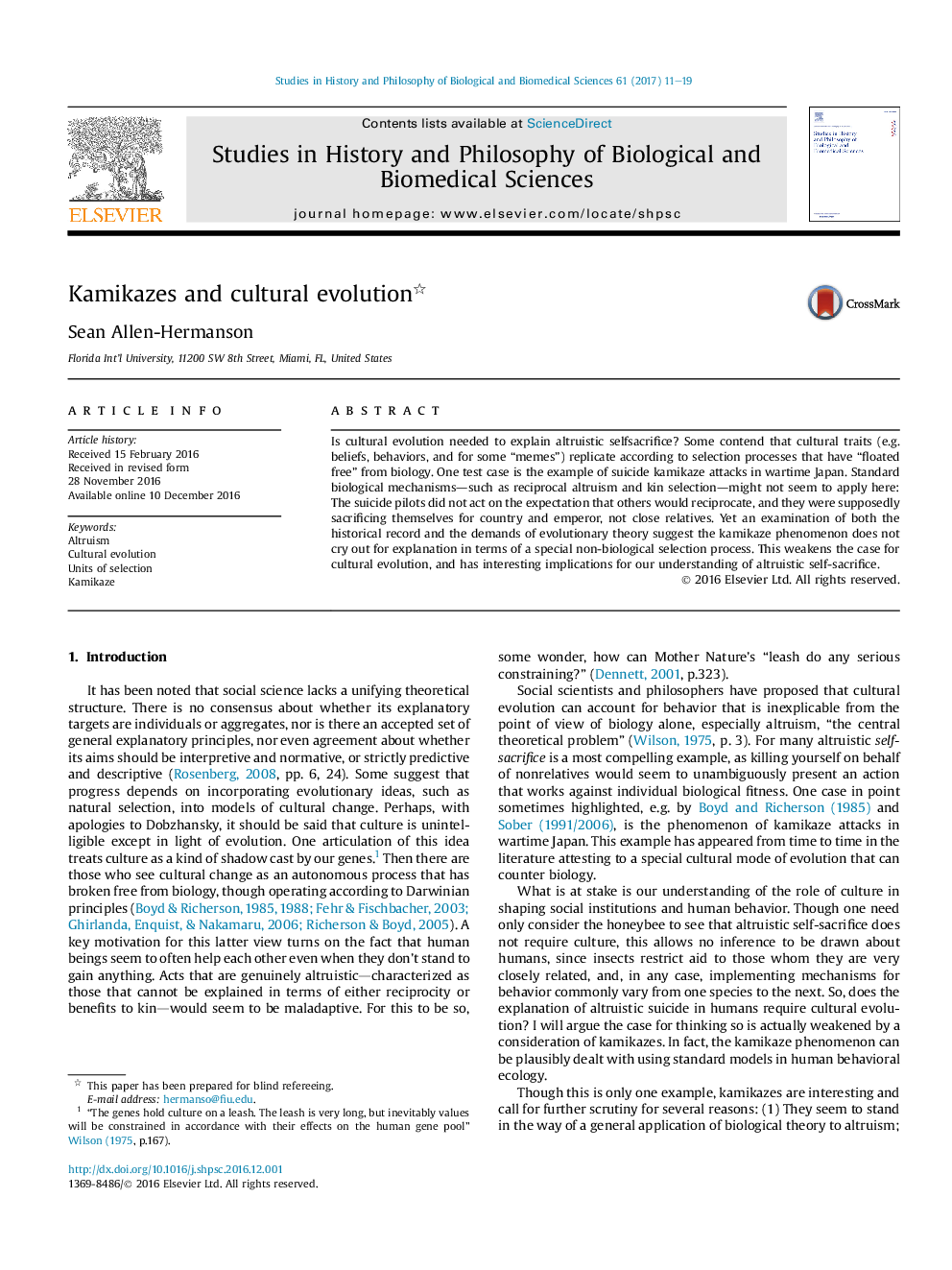| کد مقاله | کد نشریه | سال انتشار | مقاله انگلیسی | نسخه تمام متن |
|---|---|---|---|---|
| 5130546 | 1490504 | 2017 | 9 صفحه PDF | دانلود رایگان |
- It is widely assumed that kamikaze suicide cannot be explained by standard biological models of altruism.
- Kamikazes did not volunteer and are not best explained by extant models of cultural evolution.
- Although coercion can be part of a cultural evolutionary process, in the case of kamikazes this does not satisfy the Acquisition Principle.
- Kamikazes do not support the claim that cultural evolution can override biology.
Is cultural evolution needed to explain altruistic selfsacrifice? Some contend that cultural traits (e.g. beliefs, behaviors, and for some “memes”) replicate according to selection processes that have “floated free” from biology. One test case is the example of suicide kamikaze attacks in wartime Japan. Standard biological mechanisms-such as reciprocal altruism and kin selection-might not seem to apply here: The suicide pilots did not act on the expectation that others would reciprocate, and they were supposedly sacrificing themselves for country and emperor, not close relatives. Yet an examination of both the historical record and the demands of evolutionary theory suggest the kamikaze phenomenon does not cry out for explanation in terms of a special non-biological selection process. This weakens the case for cultural evolution, and has interesting implications for our understanding of altruistic self-sacrifice.
Journal: Studies in History and Philosophy of Science Part C: Studies in History and Philosophy of Biological and Biomedical Sciences - Volume 61, February 2017, Pages 11-19
